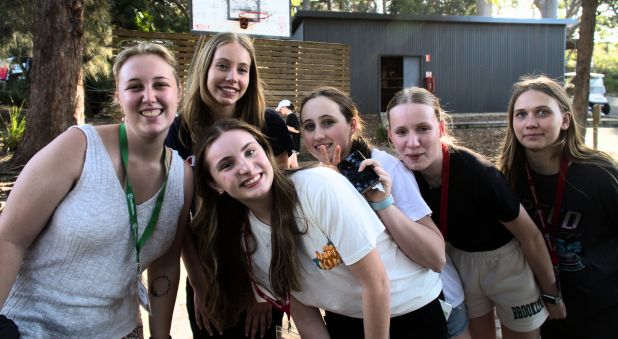From the young adults who led him at youth group to the 65-year-olds who knew him by name, Al James certainly remembers the relationships he had at church when he was young. These helped him develop a deeper connection to the broader body of Christ and shaped his faith.
Youthworks research into youth retention at church is uncovering the significance of relationships like these, which are one of the key factors helping young people who grow up in church to remain in church.
Currently less than two thirds of those who attend church as children continue to do so into adulthood. Increasing this percentage requires a multifaceted approach, focusing on deep discipleship, family involvement and intergenerational relationships.
Early links
Although the official report is not due to come for some months, some preliminary connections are emerging. The research so far has revealed a strong correlation between children who remain in church as adults and the following:
Families as faith hubs – beyond family Bible devotions and prayers, faith is discussed in everyday conversations;
Cultural relevance – young people need a strong understanding of how their faith makes sense in their world;
Partnering with parents – formal children’s and youth ministries are fantastic, but must partner with families to be fully effective;
Intergenerational discipleship – young people need strong relationships with other adults at church and a way to contribute and serve the wider church community.
“The big picture of this [research] is there is a whole ecosystem giving young people a sense that the faith they are living out works in the world they live in,” says Mr James, who is a youth ministry advisor with Youthworks.
Family faith
Talking about God at home correlates with a strong retention of young people in church.
“It’s easy for us to talk about family devotions – reading the Bible around the dinner table – and while I would never say that it’s not a good thing to do, research from a book called Handing Down the Faith talks about impromptu, ad-hoc, informal conversations,” Mr James says.
“It talks about parents being ready to have conversations about how the Christian life works, how faith interacts with the world the kids are inhabiting and how to help them deal with the real challenges they’re facing along the way – trivial or significant or societal.
“It’s not having all the answers, but displaying to the kids that this is not just a fix on Sunday. It’s something that we are living out day to day. We’ll talk on a Tuesday or a Thursday about how faith impacts how we do relationships at school, or study, or exams, or why helping around the house is important.
It’s an integrated faith, not just a Sunday faith, but a faith that is able to interact and wrestle with the real challenges young people are facing.”
Who do you invest in at your church?
One danger of having brilliant children’s and youth ministries is that we can inadvertently leave investing in young people to the leaders. Mr James observes that discipling young people is something for the whole church.
“Just as we would want adults to encourage one another, we also want to recognise there’s a place for the whole body of Christ to encourage our kids and for our kids to encourage our adults,” he says, adding that adults in church have a responsibility to look to connect with and encourage younger people in appropriate ways.
“The primary responsibility of discipleship to young people lies with the family. God has tasked this to the household – but the household can include more people than just Mum and Dad and siblings. What we’re trying to create is a five-to-one [five adults to every youth] team, or create a discipleship group or family around young people. That’s done best when it’s led by the family rather than as a program of the church. And that’s done through relationships and through community.”
Mr James recalls a family at the church he attended as a child whose kids were his leaders at youth group and kids’ club, and whose mother was “very invested in all of the young people”.
“I remember another much older saint who conversed with us whipper snappers. They didn’t speak the ‘lingo’, they weren’t cool, but they always remained interested and ready for conversation.
“Sometimes I was not easy to talk to and would ask challenging questions, and they were very gracious. It enabled me to wrestle with faith, knowing that someone would be okay if I didn’t have all the answers yet. I was very blessed by God to have a number of different people who were interested in me and my faith at the various stages along the way.”
He remembers that even though youth ministry was age-specific, there was a sense at his church that young people were connected to something bigger and he was also welcome in that wider space.
“Being a teenager is complicated,” Mr James says. “My story is that the body of Christ gave me a deep sense of connection. Sixty-five year olds are often scared of 14 year olds, and 14 year olds often don’t know they need – or want – to talk to 65 year olds. That’s a barrier that in God’s kindness is and can be overcome, but it can take some persistence.”
PRAY
- that through the holistic discipleship of young people, they will encounter and grow in a coherent biblical faith that they can see works in the world
- for families who take on the daunting task of discipling their children, that they will keep faith on the agenda and talk about how Jesus makes an impact on how young people live
- for churches to take seriously how young people are discipled now, recognising that they can meaningfully contribute to the life and faith of others and to the body of Christ






















